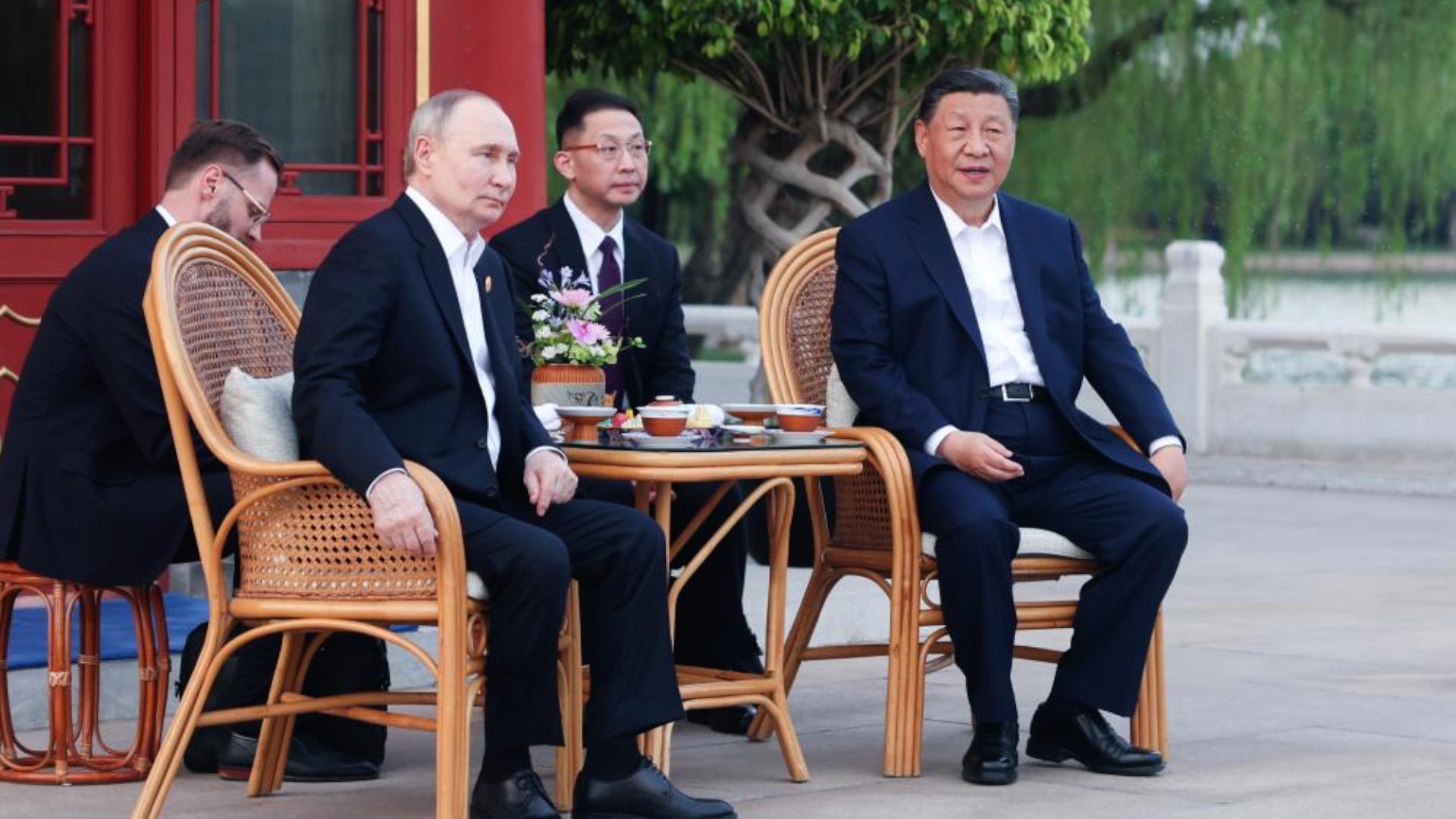
Chinese President Xi Jinping held a restrictive meeting with Russian President Vladimir Putin on May 16 at Zhongnanhai in Beijing.
On May 16 and 17, Russian President Vladimir Putin paid a state visit to China and attended the eighth China-Russia Expo. It was the first visit by Putin since the start of his new term. The visit yielded a series of important and groundbreaking outcomes for the future growth and broader prospects of bilateral relations. It also recognized the 75th anniversary of diplomatic relations between the two countries.
Economic and trade prospects
After the outbreak of the crisis in Ukraine, the United States and Europe imposed a sweeping trade and technology blockade on Russia, creating a severe gap in Russia’s trade in energy, electromechanical products and agriculture. In view of the strong economic complementarity of China and Russia, China promptly took up the slack. Last year, China-Russia trade topped $240.1 billion, exceeding the goal of $200 billion put forward by the heads of state of the two countries ahead of schedule. This overperformance in trade between the two countries has laid a foundation for further pragmatic cooperation in the future.
New progress in economic and trade cooperation was achieved during Putin’s visit, which not only speaks to the sincerity and commitment of the two countries to deepen practical cooperation but also helps further tap the potential of the two economies to complement each other.
First is border cooperation. Putin visited Harbin, Heilongjiang province, to attend the opening ceremony of the eighth China-Russia Expo and the fourth Russia-China Forum on Interregional Cooperation, reflecting the importance both countries attach to cross-border co-operation. China and Russia will also be engaged in constructive dialogue with the Democratic People’s Republic of Korea about Chinese ships sailing through the lower reaches of the Tumen River. They will jointly develop Heixiazi Island, which is bound to further invigorate cooperation between the Russian Far East and China’s Northeast.
Second is Arctic cooperation. A subcommittee on China-Russia cooperation in Arctic shipping lanes was set up to develop the lanes as the important international transport corridor. This will not only reshape the global shipping landscape, but also promote cooperation in Sino-Russian Arctic development, creating new growth drivers for practical cooperation between the two countries.
Third is financial cooperation. It is imperative to expedite the formulation and approval of a new version of the China-Russia investment cooperation program in 2024, so as to remove barriers hindering bilateral investment. Meanwhile, it is necessary to improve the financial infrastructure of the two countries and foster unimpeded access to settlement channels for business entities between them.
New Eurasian security order
In this year’s State of the Nation address, Putin mentioned that in the current geopolitical context it is necessary to explore the establishment of a sustainable security system in Eurasia based on the principle of equal and indivisible security. Since the outbreak of the Ukraine conflict, Russia has become preoccupied with warfare and has had to reduce resources invested in its backyard. The U.S. and other Western countries and third-parties have taken advantage of the opportunity to infiltrate; hence, a geopolitical landscape where Russia retreats and the West advances has come into being.
In parallel, China is being contained by the U.S. and some other Western countries in the Asia-Pacific region. It is fair to say that the Indo-Pacific strategy of the U.S., combined with NATO’s ambitions, constitutes a major threat to China’ national security. Therefore, it is necessary to build a new security order in the Eurasian space that takes into account the security interests of all parties.
During Putin’s visit, the two sides reaffirmed in a joint statement that “in the current geopolitical context, it is necessary to explore the establishment of a sustainable security system in the Eurasian space in line with the principle of equal and indivisible security.” In this way, the region can become a common home of peace, stability, mutual trust, development and prosperity. From this perspective, the comprehensive strategic partnership between Russia and China takes on new dimensions.
Stepped-up exchanges of people
People-to-people exchanges between China and Russia have been a long tradition and have become central to relations. The two countries have established effective cooperation and coordination mechanisms in the field and have adopted reciprocal schemes — such as “National Year,” “Year of Languages,” “Year of Tourism,” “Year of Youth Friendship and Exchange,” “Year of Media Exchange,” “Year of Local Authorities” and “Year of Interregional Cooperation.” Such top-down programs have attracted wide public participation and have increased the goodwill between the two peoples.
However, in the face of constant third-party interference and provocation, consolidating public goodwill remains an important task in the long-term for strengthening ties. During Putin’s visit to China, the Year of Chinese and Russian Culture 2024-25 was officially launched. It provides an excellent opportunity for the two peoples to learn about each other’s culture and enhance mutual understanding.
The cultural departments of China and Russia have planned a rich agenda of cultural activities involving exhibitions of cultural relics, film viewing, stage performances, cultural and creative industry exchanges involving young people and exchange programs for writers. In addition, the two countries also plan to commemorate the 80th anniversary of victory in World War II next year to honor their common history and promote a correct understanding of the war.
There is no denying that Russia’s relations with the United States and the West are mired in confrontation, which is one of the external driving forces for the further development of China-Russia relations. But China-Russia relations also have their own endogenous momentum and independent values, guided by the strategic leadership of their heads of state. With that, the China-Russia comprehensive strategic partnership of coordination for the new era will grow from strength to strength.
